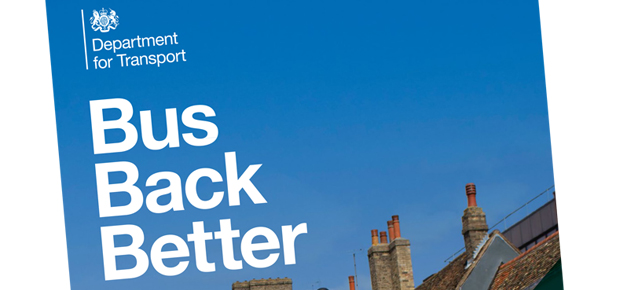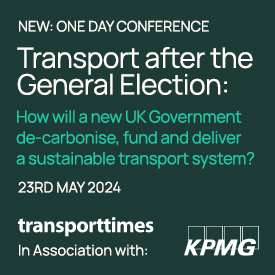The National Bus Strategy says bus lanes ‘should be full time’ but new guidance from DfT says they should ‘only operate when it makes sense’

In the week that marked the third anniversary of the publication of Bus Back Better, its national bus strategy for England, the government has ditched support for full-time bus lanes.
Launched in March 2021, the national bus strategy called for significant increases in bus priority to speed up bus journeys. It declared: “In Bus Service Improvement Plans, we expect to see plans for bus lanes on any roads where there is a frequent bus service, congestion, and physical space to install one. Bus lanes should be full-time and as continuous as possible.”
However, reflecting the shift in policy under the leadership of prime minister Rishi Sunak, bus lanes were last week among a range of local transport policies that will have new Department for Transport guidance as part of its ‘Plan for Drivers’ initiative.
At the moment, restrictions on bus lane use are too rigid
Local authorities are no longer urged to implement full-time bus lanes. In stark contrast to the national bus strategy, the DfT said: “At the moment, restrictions on bus lane use are too rigid, creating delays and causing regular fines for drivers. New guidance on bus lanes has also been issued today [March 17], to make sure they only operate when it makes sense, like when traffic is heavy enough to delay buses. This will prevent drivers being hit with unfair fines.”
Additionally, a consultation will be conducted on allowing motorcycles to use bus lanes by default – “a further initiative to reduce congestion and speed up journey times”.
Other measures announced last week restrict the introduction of Low Traffic Neighbourhoods and 20mph limits. Transport secretary Mark Harper told parliament: “These measures demonstrate our intent that drivers should be treated fairly.”
Responding to the package of measures, Paul Tuohy, chief executive officer of charity Campaign for Better Transport, said: “Divisive rhetoric which pits drivers against public transport users is a nonsense. Many drivers are public transport users too, and many more would like to be.
“Bus lanes and other bus-friendly measures, such as phased traffic lights, are a tried and tested way to reduce congestion by speeding up bus journey times and boosting bus passenger numbers. Any measures which reduce their effectiveness will not just result in longer journey times for bus passengers, it will also result in longer journeys for drivers too.”
Divisive rhetoric which pits drivers against public transport users is a nonsense
In an article in this edition of Passenger Transport, David Begg, a former chair of the government’s Commission for Integrated Transport, writes: “The ‘war on the motorist’ has been weaponised by a desperate government facing oblivion in the polls in the same way as identity politics and Islamophobia have been aimed at whipping up fear and hatred.”
This article appears in the latest issue of Passenger Transport.
DON’T MISS OUT – GET YOUR COPY! – click here to subscribe!








